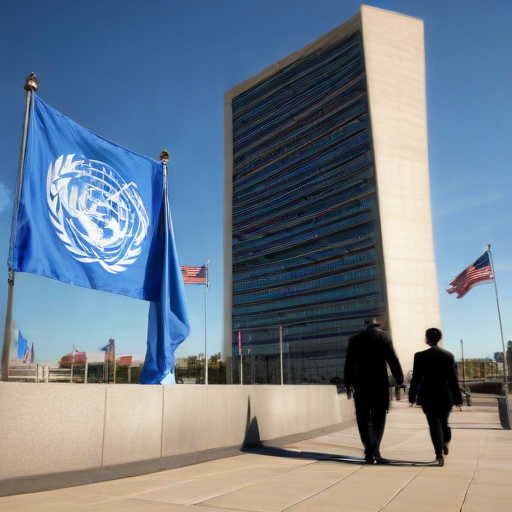President-elect Donald Trump has officially nominated Republican Representative Elise Stefanik as the U.S. Ambassador to the United Nations. In a statement, Trump praised Stefanik, calling her a strong and intelligent advocate for the America First agenda. This nomination comes as no surprise, as Stefanik has been a staunch ally of Trump and a prominent figure in the Republican Party.
Stefanik, who represents New York and holds the position of the fourth-ranking House Republican, has made a name for herself as a significant fundraiser for the GOP and a vocal critic of the UN. Her recent comments suggest a readiness to adopt a more aggressive stance toward the organization, particularly in relation to its critiques of Israel. She has argued for a thorough review of U.S. funding to the UN if perceived anti-Israel measures continue.
Known for her strong support of Trump, Stefanik gained national recognition for her forceful defense of him during the impeachment hearings in 2019, which dubbed her a “Republican star.” Despite her unwavering support now, her political journey has seen shifts; she initially opposed some of Trump’s policies, including his 2017 tax plan. However, her evolution towards a more supportive role was influenced by Trump’s popularity within her district.
As Trump embarks on a fresh pursuit of the Republican presidential nomination for 2024, Stefanik has also expressed interest in possibly being his running mate and has reaffirmed her commitment to supporting his administration. Her leadership within Congress also includes her role as the chair of the House Republican Conference, a position she took over from Liz Cheney after Cheney’s criticism of Trump’s behavior.
Additionally, Trump’s nomination of Stefanik indicates a clear shift in U.S. foreign policy optics, potentially signaling a more confrontational approach to international diplomacy under her leadership. With this appointment, there is a broader implication regarding the U.S.’s stance on global alliances and financial support to international organizations, which could provoke ongoing discussions about America’s role on the world stage.
In summary, Stefanik’s nomination not only highlights her rising influence in the Republican Party but also sets the tone for a potentially more aggressive U.S. foreign policy in collaboration with the UN, particularly regarding issues related to the Middle East. This could pave the way for a renewed focus on strengthening alliances that align with U.S. interests.
With fresh leadership and a clear agenda, there is a sense of hope for supporters of the Trump administration that this approach will lead to greater effectiveness in international relations and enhance America’s position in global discussions.
